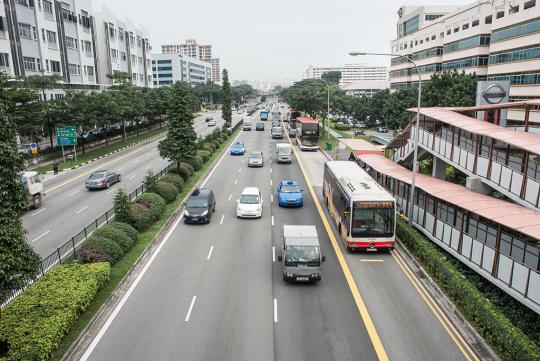COE cycles of boom and bust
COE cycles of boom and bust

 Since its inception in 1990, the vehicle quota system has followed a 10-year peak-and-trough cycle, where the annual supply of certificates of entitlement (COEs) could vary from 20,000 to 100,000.
Since its inception in 1990, the vehicle quota system has followed a 10-year peak-and-trough cycle, where the annual supply of certificates of entitlement (COEs) could vary from 20,000 to 100,000.
Even if this fluctuation does not impair the effectiveness of the COE system in controlling Singapore's vehicle population, it is highly disruptive. For consumers, the price swings cause discontent, and trigger wasteful outcomes such as cars barely three years old being scrapped.
This is because when COE supply is on an upswing, the price of a new car could fall below the residual value of one bought two years earlier.
This negative equity has an impact on banks and financial institutions. In the case of defaults, these lenders cannot recoup their loans.
The recent curb on car loans mitigates this risk, but not fully.
The biggest disruption, however, is to the motor industry. When COEs are bountiful, companies raise their headcount to cope with the surge in sales - only to lay off people when the next dry spell hits.
This hire-and-fire pattern makes the sector a highly volatile one. This, in turn, makes skills development that much more challenging, not to mention the ripple effect that disrupted employment has on families and the economy at large. The industry is by no means insignificant. At last count, authorised agents accounted for 4,000 jobs. This could swell to 6,000 in the next two to three years, when COE supply peaks.
The figures exclude parallel importers and supporting businesses such as leather upholsterers, accessory shops, and logistics providers like car transporters and warehousing firms.
Industry players and advocates have appealed for a more stable and predictable COE supply pattern for some 20 years now. The Government has stood its ground, even when it was presented with the ideal environment a decade ago to make a change. That was when an oversupply brought COE prices down to $3,000 or less.
by Christopher Tan


10 Comments
Recommended Comments
Create an account or sign in to comment
You need to be a member in order to leave a comment
Create an account
Sign up for a new account in our community. It's easy!
Register a new accountSign in
Already have an account? Sign in here.
Sign In Now